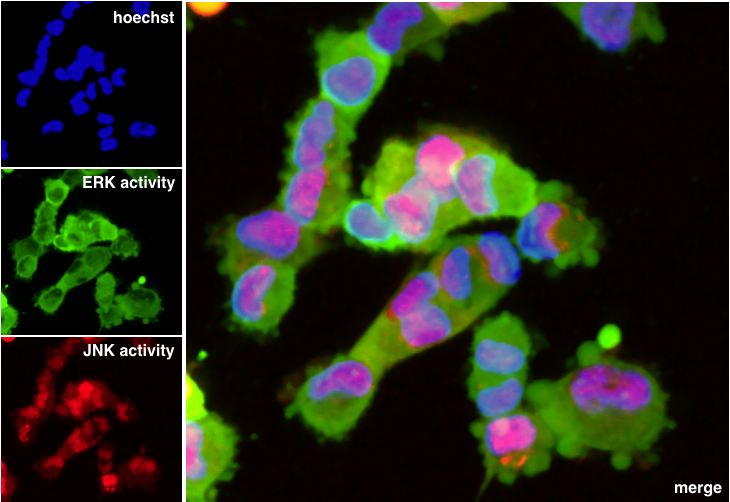Tyrosine kinase inhibitors such as sunitinib, foretinib, and crizotinib comprise a significant class of cancer-fighting compounds. These molecules function by binding to receptor tyrosine kinases (RTKs) such as MET, VEGFR, and MERTK. This disables phosphorylation in pathways that can lead to oncogenic or inflammatory responses in cancer cells, such as the MAPK pathways ERK and JNK. Despite promising indications, kinase inhibitors have shown results that are highly variable from patient to patient. These discrepancies may be partly due to problems in drug delivery, arising from these molecules’ categorical hydrophobicity. One potential solution is the encapsulation of kinase inhibitors in amphiphilic nanoparticles. Development of a nanoparticle-packaging platform for these molecules would provide the scientific community with an adaptable mechanism for improving drug delivery. Furthermore, nanoparticles can be customized to include tumor or immune targeting moieties, which may enable their use to target specific pathways in immune-tumor interactions. My work will involve identification of successful nano-encapsulation strategies for different kinase inhibitors. Subsequently, nanoparticle performance will be monitored in vitro and vivo. Eventually, the targeting of nanoparticles to interfere with tumor-immune crosstalk will explore the feasibility of employing nanoparticles in immuno-oncology.




